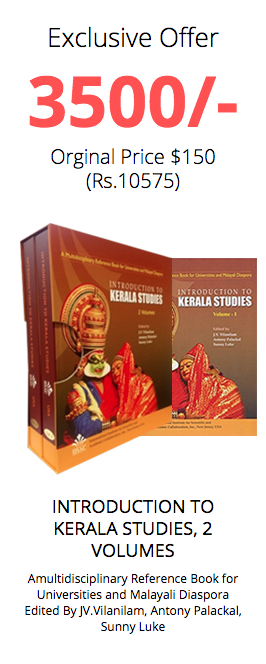
Violence in Francophone African and Caribbean Women’s Literature
3,753.00₹ 3,150.00₹
African and Caribbean peoples share a history dominated by the violent disruptions of slavery and colonialism. While much has been said about these “geographies of pain,” violence in the private sphere, particularly gendered violence, receives little attention. This book fills that void. It is a critical addition to the study of African and Caribbean women’s literatures at a time when women from these regions are actively engaged in articulating the ways in which colonial and postcolonial violence impact women.
Chantal Kalisa examines the ways in which women writers lift taboos imposed on them by their society and culture and challenge readers with their unique perspectives on violence. Comparing women from different places and times, Kalisa treats types of violence such as colonial, familial, linguistic, and war-related, specifically linked to dictatorship and genocide. She examines Caribbean writers Michele Lacrosil, Simone Schwartz-Bart, Gisèle Pineau, and Edwidge Danticat, and Africans Ken Begul, Calixthe Beyala, Nadine Bar, and Monique Ilboudo. She also includes Sembène Ousmane and Frantz Fanon for their unique contributions to the questions of violence and gender. This study advances our understanding of the attempts of African and Caribbean women writers to resolve the tension between external forms of violence and internal forms resulting from skewed cultural, social, and political rules based on gender.
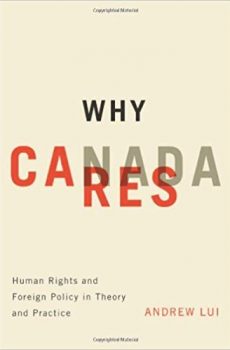
Why Canada Cares
2,290.00₹ 1,490.00₹
Support for international human rights has become an entrenched part of Canada’s national mythology. Despite the gravity of human rights issues and how Canada appears to champion various causes, the role of human rights in Canadian foreign policy has received surprisingly little scrutiny. In Why Canada Cares, Andrew Lui brings clarity to this under-explored part of Canada’s identity.
Lui provides a chronological and theoretically grounded analysis of human rights in Canadian foreign policy since 1945. He argues that while the country has rarely proven willing to sacrifice material advantage for international human rights causes, Canada has pursued human rights as part of a broader attempt to cement individual rights as the cornerstone of Canadian federalism and aimed to mitigate friction between the country’s diverse social groups. In other words, international human rights were implemented as a way to express and establish an expansive vision of what Canadian society should look like in order to survive and flourish as a coherent and unified political entity.
The first comprehensive, single-authored book on the topic, Why Canada Cares uncovers the foundations of Canada’s international human rights policies and offers insight into their possibilities and limits.
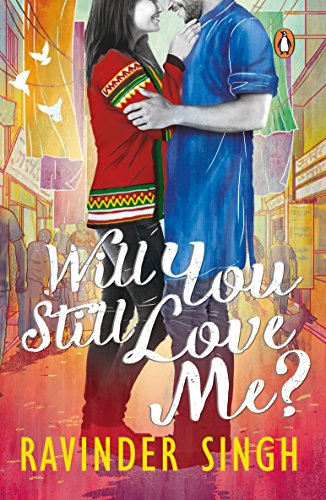
WILL YOU STILL LOVE ME
199.00₹ 130.00₹
Lavanya Gogoi is from the scenic hills of Shillong while Rajveer Saini belongs to the shahi city of Patiala. Worlds apart from one another, the two land up next to each other on a flight from Mumbai to Chandigarh. It’s love at first flight, at least for one of them. For the other . . . well, it’s going to take more than a plane ride!
And when love does finally happen, there are more obstacles to overcome. Rajveer has to stand up against his own if he and Lavanya are to be together.
However, life has other plans. Things go horribly wrong and Rajveer now has to fight a different battle-one in which he is the devil as well as the deliverer. His love for Lavanya will be put to the ultimate test. And there are no guarantees.
Will You Still Love Me? is deeply moving, disturbingly close to reality, and love at its worst and its best.
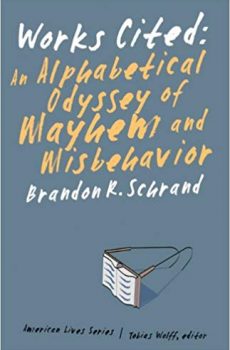
Works Cited: An Alphabetical Odyssey of Mayhem and Misbehavior
1,190.00₹ 950.00₹
“Doing things by the book” acquires a whole new meaning in Brandon R. Schrand’s memoir of coming of age in spite of himself. The “works cited” are those books that serve as Schrand’s signposts as he goes from life as a hormone-crazed, heavy-metal wannabe in the remotest parts of working-class Idaho to a reasonable facsimile of manhood (with a stop along the way to buy a five-dollar mustard-colored M. C. Hammer suit, so he’ll fit in at college). The Adventures of Huckleberry Finn informs his adolescent angst over the perceived injustice of society’s refusal to openly discuss boners. The Great Gatsby serves as a metaphor for his indulgent and directionless college days spent in a drunken stupor (when he wasn’t feigning interest in Mormonism to attract women). William Kittredge’s Hole in the Sky parallels his own dangerous adulthood slide into alcoholism and denial.
With a finely calibrated wit, a good dose of humility, and a strong supporting cast of literary characters, Schrand manages to chart his own story—about a dreamer thrown out of school as many times as he’s thrown into jail—until he finally sticks his landing.

Writers in Conflict in Sixteenth-Century France
4,500.00₹ 1,190.00₹
These essays written to celebrate the distinguished career of Renassiance scholar, Professor Malcolm Quainton, confirm the idea that the sixteenth-century in France was deeply marked by conflict, but readers expecting to find a volume wholly devoted to studies of war and religious disputation will be intrigued to discover that these rare not the only topics discussed.
A number of subtle analyses reveal the stresses of internal conflict experienced by writers and woven into the fabric of their compositions. The three sections focus respectively on living and writing in conflict, the Wars of Religion, and intertextuality as conflict. Subjects include Ronard, Baïf, Du Bellay, D’Aubigné, sonnets by Mary Queen of Scots and the political role of court festivities, while a previously unknown riposte to Clément Marot is first published here.
This book will appeal to scholars and students of French language, literature and culture, and sixteenth-century European history.
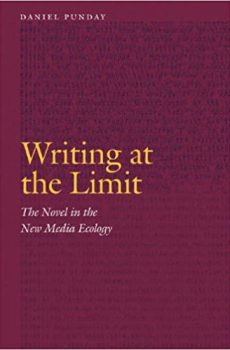
Writing at the Limit: The Novel in the New Media Ecology
4,190.00₹ 3,500.00₹
While some cultural critics are pronouncing the death of the novel, a whole generation of novelists have turned to other media with curiosity rather than fear. These novelists are not simply incorporating references to other media into their work for the sake of verisimilitude, they are also engaging precisely such media as a way of talking about what it means to write and read narrative in a society filled with stories told outside the print medium.
By examining how some of our best fiction writers have taken up the challenge of film, television, video games, and hypertext, Daniel Punday offers an enlightening look into the current status of such fundamental narrative concepts as character, plot, and setting. He considers well-known postmodernists like Thomas Pynchon and Robert Coover, more-accessible authors like Maxine Hong Kingston and Oscar Hijuelos, and unjustly overlooked writers like Susan Daitch and Kenneth Gangemi, and asks how their works investigate the nature and limits of print as a medium for storytelling.
Writing at the Limit explores how novelists locate print writing within the contemporary media ecology, and what it really means to be writing at print’s media limit.
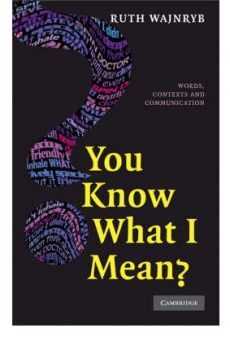
You Know what I Mean?
1,750.00₹ 1,590.00₹
Does a word mean what it says? Sometimes – but not always. Everyone thinks that meaning is contained within words – like sardines in a tin, or milk in a bottle. After all, words are nice stable things that you can look up in a dictionary aren’t they? But dictionaries only take us so far… If you eavesdropped on a teenage conversation, rushing to a dictionary – with its definitions frozen in time – wouldn’t help much. Who’s using a word and to whom, in what context, for what purpose – all these influence the meaning of the language we use. The word’s origins and history (its ‘genetics’) also help. Try teaching yourself another language from a phrasebook and you’ll soon learn that you can be correct, in the formal sense, but still way behind the times in reality. In this book Wajnryb considers these and other questions to explore how and why our language works the way it does.
- Offers a fresh approach to thinking about language
- Includes lots of contemporary references and examples to illustrate points
- Each section is self-contained so readers can browse rather than read from cover to cover
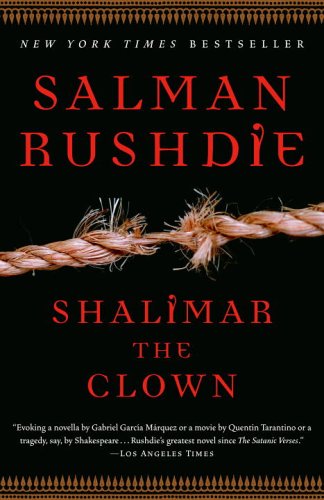
SHALIMAR THE CLOWN
550.00₹ 410.00₹
This is the story of Maximilian Ophuls, America’s counter terrorism chief, one of the makers of the modern world; his Kashmiri Muslim driver and subsequent killer, a mysterious figure who calls himself Shalimar the clown; Max’s illegitimate daughter India; and a woman who links them, whose revelation finally explains them all. It is an epic narrative that moves from California to Kashmir, France, and England, and back to California again. Along the way there are tales of princesses lured from their homes by demons, legends of kings forced to defend their kingdoms against evil. And there is always love, gained and lost, uncommonly beautiful and mortally dangerous.

